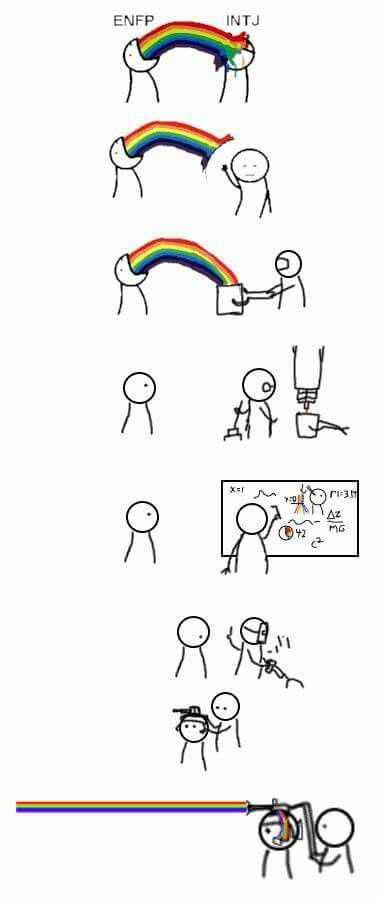Artemisia
Community Member
- MBTI
- INFJ
I wonder if this is an INFP trait or one associated specifically with my philosopher boyfriend. He teacher epistemology and is one of those types who, although very creative and poetic, does not believe in the subconscious, thinks that all people are basically good, and that ulterior motives in others are basically in our own minds.
Sometimes I have disagreements with him. For example, he tells me that his friends will always be there for him and that they love him etc. I tell him that if he becomes more successful, many of these male friends will grow distant from him because his success is a reminder of their own failure. He does not agree with this.
As an INFJ I am very good at detecting hidden motives in people. I know, for example, that I need to steer clear of that person because she is jealous or a gossip. I can also detect microexpressions on someone´s face which reveal true emotions. My boyfriend, being an epistemologist, believes that all of this is in my head and that their true motives are basically good.
Am I wrong in thinking that my boyfriend is naive about humans? Are INFP men in general idealistic and naive?
Sometimes I have disagreements with him. For example, he tells me that his friends will always be there for him and that they love him etc. I tell him that if he becomes more successful, many of these male friends will grow distant from him because his success is a reminder of their own failure. He does not agree with this.
As an INFJ I am very good at detecting hidden motives in people. I know, for example, that I need to steer clear of that person because she is jealous or a gossip. I can also detect microexpressions on someone´s face which reveal true emotions. My boyfriend, being an epistemologist, believes that all of this is in my head and that their true motives are basically good.
Am I wrong in thinking that my boyfriend is naive about humans? Are INFP men in general idealistic and naive?


